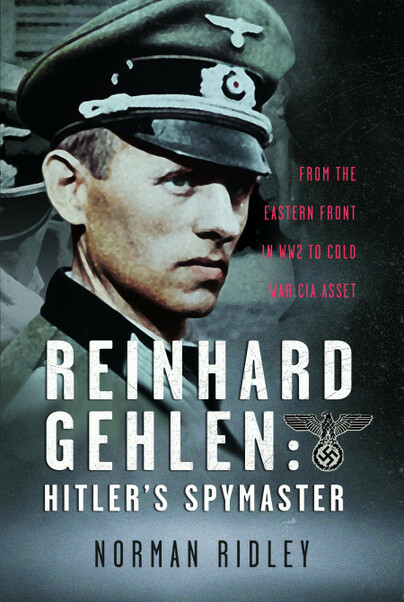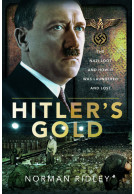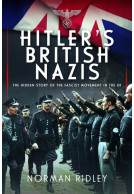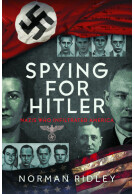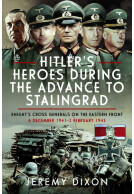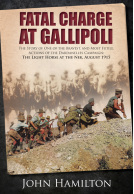Reinhard Gehlen: Hitler’s Spymaster (Hardback)
From the Eastern Front in WW2 to Cold War CIA Asset

Pages: 256
Illustrations: 16 mono illustrations
ISBN: 9781036113254
Published: 30th January 2025
(click here for international delivery rates)
Order within the next 11 hours, 25 minutes to get your order processed the next working day!
Need a currency converter? Check XE.com for live rates
Eleven years after Reinhard Gehlen, the head of Adolf Hitler’s Eastern Front military intelligence unit, emerged from hiding to hand himself over to US forces, he had, with the help of the American CIA, created a legend for himself as founder and first president of the West German Secret Service. In this role he employed many of the same Wehrmacht and SS officers he had served with during the Second World War.
All through the steady progression of his career before and during the Second World War, Gehlen had been far too industrious and committed to court the limelight. Then after the defeat of Germany, when he transferred his allegiance to the CIA and later became head of the Bundesnachrichtendienst, he became a man whom Hugh Trevor Roper’s described as someone who ‘always moved in the shadows’.
For some, the German intelligence network that Gehlen had controlled since 1942, was part of an unbroken tradition going back to the days of Bismarck. For a great many in Gehlen’s organisation the Cold War was merely an extension of an anti-Soviet campaign that had begun on 22 June 1941, when Hitler launched Operation Barbarossa.
After the war, Gehlen had emerged unscathed from Hitler’s bunker and no war crimes charges were ever brought against him. His name, and those of 350 of his Wehrmacht command, were redacted from the official lists of German prisoners of war. Gehlen protected and employed men like Heinrich Schmitz who had been part of Einsatzgruppe A, the murder squad that massacred so many, including communist functionaries and Jewish women, men and children, in the Baltic States.
Though Gehlen had remained loyal to Hitler right to the end, once state authority collapsed he wasted little time in making contact with the Americans and offered to place his vast intelligence resources at their disposal in the new fight against Soviet communism. While German generals Heinz Guderian and Franz Halder placed great store by Gehlen’s reports on the tactical level, Hitler called them ‘defeatist’ and gave them barely a glance when making his disastrous strategic decisions. Allen Dulles, head of the CIA, did not repeat Hitler’s mistake, but Gehlen deeply resented the way that his reports to Dulles were mishandled.
It became Gehlen’s ambition initially to head up a completely independent West German foreign intelligence service. However, it was not until 1951 that talks to establish a West German intelligence service at federal level began. In the immediate post-war years, Gehlen tirelessly made his case to defend the harbouring of former Wehrmacht and SS personnel in his organisation and battled to prove his worth to the Americans.
This book looks at Gehlen’s life from his early career in the chaos of Weimar, through his elevation to General Staff intelligence officer on the Russian Front. It describes how he survived the defeat of the Third Reich and offered himself to the Americans as a foil against the Soviet Union in the Cold War. In doing so it closely examines Gehlen’s record to separate fact from his self-serving fictions.
There are no reviews for this book. Register or Login now and you can be the first to post a review!
About Norman Ridley
NORMAN RIDLEY is an Open University Honours Graduate who writes about the less well covered aspects of 20th Century history. He lives in the Channel Islands.







